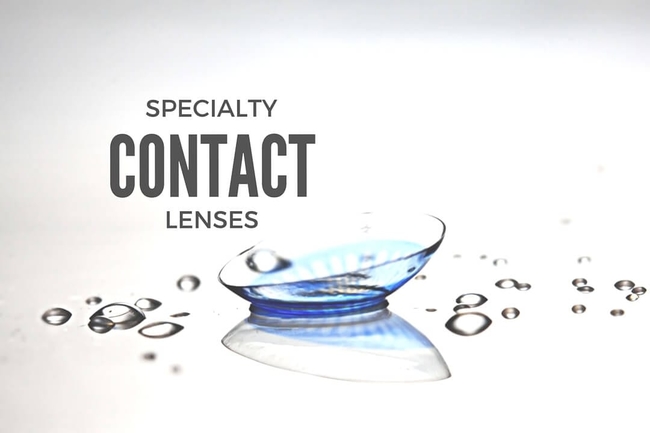Research and development are important parts of the vision industry. This is especially true in the creation of specialty contact lenses. It should come as no surprise that ‘one size does not fit all’ when it comes to contact lenses. Everyone’s eyes are a little different and so are their vision needs.
One recent update has been the creation of the ‘scleral gas permeable’ (GP) contact lenses. Scleral lenses are unique. They have a built-in liquid reservoir that aids in correcting corneal irregularities. They also offer relief and even a measure of healing to the ocular surface of the eyeball. The scleral gas permeable contact lenses additionally work to protect the cornea from certain types of trauma that are the result of over-blinking.
The GP lenses are becoming a regular remedy prescribed by optometrists to treat dry eyes. Currently over 5 million Americans suffer from this problem. A person that suffers from dry eye usually develops an intolerance for wearing contact lenses. However, thanks to advancements in the development of contact lenses at the manufacturing level, they have become a more realistic option for people who suffer from a variety of corneal issues. If an optometrist suggests GP contact lenses be prepared for them to look slightly different than other contacts. First, they will be a bit larger. That is because they are designed to cover the entire cornea.
Another type of specialty lenses has been designed for eyes that are ‘post-LASIK’ or have other refractive issues. Many people find the need for contact lenses to be confusing or problematic once they have undergone refractive or other forms of corrective eye surgery. Their common question is ‘doesn’t the surgery take care of the problem?’ Well, in most instances that is the case, but there are occasional times when contact lenses will still be needed. That is because LASIK is not a permanent vision correct procedure. Everyone’s eyes and eyesight will continue to deteriorate as a result of the aging process.
There are other types of eye conditions that may make it difficult if not impossible to wear contact lenses. For example, astigmatism and presbyopia are both conditions that challenge people to comfortably wear contacts and they may need to switch to eyeglasses.
Whether you need contacts or eyeglasses contact the experts at Island Eyecare.


